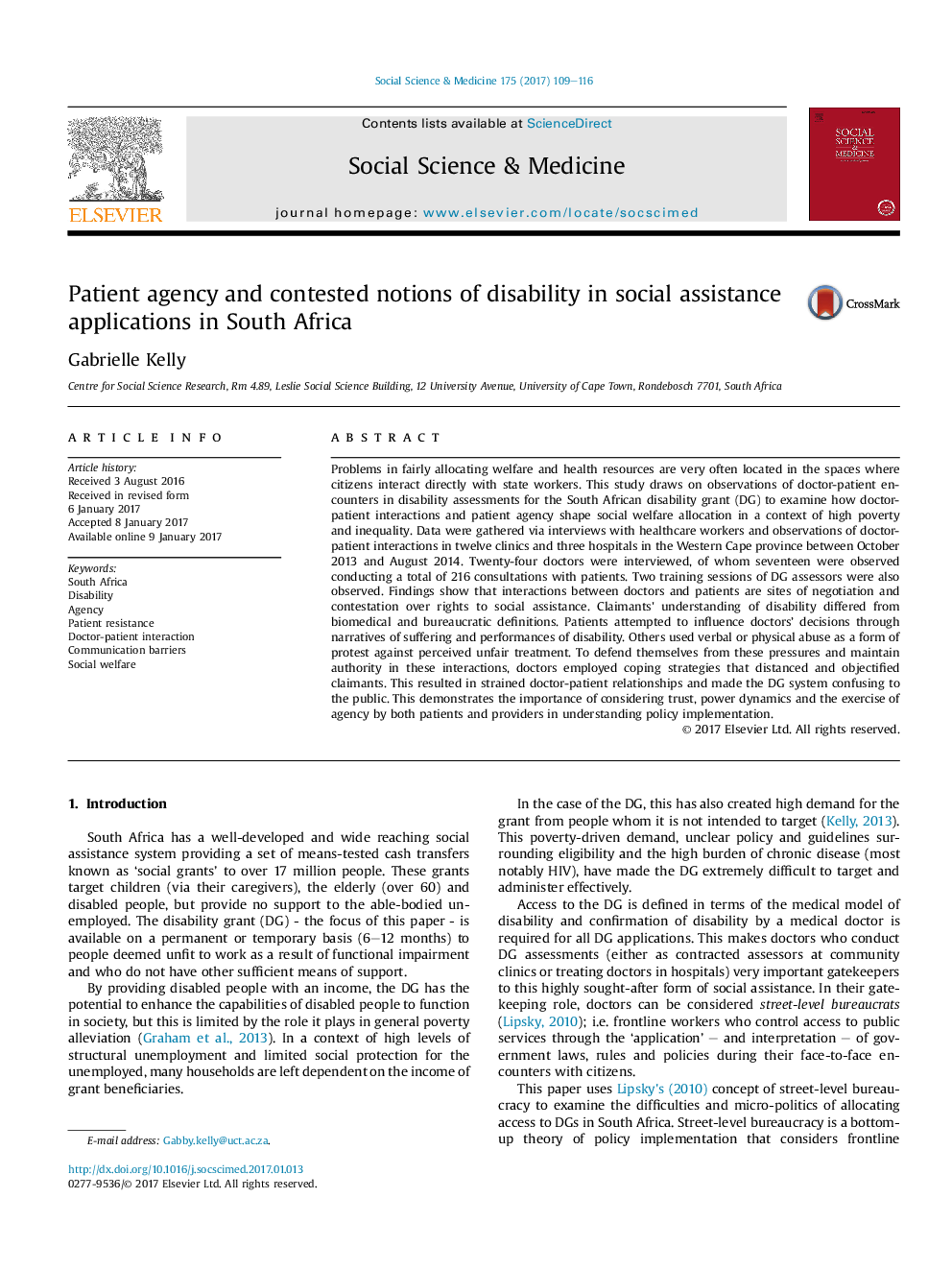| Article ID | Journal | Published Year | Pages | File Type |
|---|---|---|---|---|
| 5046687 | Social Science & Medicine | 2017 | 8 Pages |
â¢Applies the street-level bureaucracy concept to understanding the allocation of disability benefits.â¢Discusses the contested nature of the disability category in a context of high poverty.â¢Demonstrates how social interactions and agency influence policy implementation.â¢Contributes to the limited literature on disability policy implementation in developing countries.
Problems in fairly allocating welfare and health resources are very often located in the spaces where citizens interact directly with state workers. This study draws on observations of doctor-patient encounters in disability assessments for the South African disability grant (DG) to examine how doctor-patient interactions and patient agency shape social welfare allocation in a context of high poverty and inequality. Data were gathered via interviews with healthcare workers and observations of doctor-patient interactions in twelve clinics and three hospitals in the Western Cape province between October 2013 and August 2014. Twenty-four doctors were interviewed, of whom seventeen were observed conducting a total of 216 consultations with patients. Two training sessions of DG assessors were also observed. Findings show that interactions between doctors and patients are sites of negotiation and contestation over rights to social assistance. Claimants' understanding of disability differed from biomedical and bureaucratic definitions. Patients attempted to influence doctors' decisions through narratives of suffering and performances of disability. Others used verbal or physical abuse as a form of protest against perceived unfair treatment. To defend themselves from these pressures and maintain authority in these interactions, doctors employed coping strategies that distanced and objectified claimants. This resulted in strained doctor-patient relationships and made the DG system confusing to the public. This demonstrates the importance of considering trust, power dynamics and the exercise of agency by both patients and providers in understanding policy implementation.
